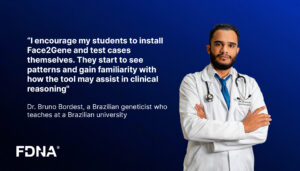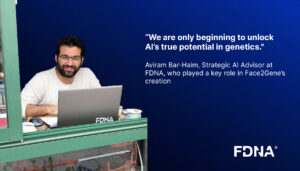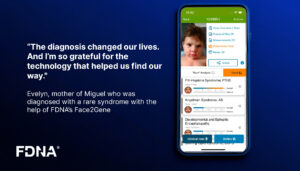December 10, 2022
The article from Diário PcD, describes FDNA utilizes deep learning technology to assist Brazilian geneticists in diagnosing rare genetic diseases. This innovative tool employs advanced facial recognition and deep learning algorithms to analyze patient photos. By comparing facial features to a vast database of genetic conditions, Face2Gene provides rapid and precise diagnostic suggestions. This deep learning technology aids healthcare professionals, enhancing early diagnosis and personalized treatment plans. FDNA’s groundbreaking approach demonstrates the transformative potential of deep learning technology in medical diagnostics, making it easier and more efficient to identify rare genetic disorders and improve patient outcomes.


